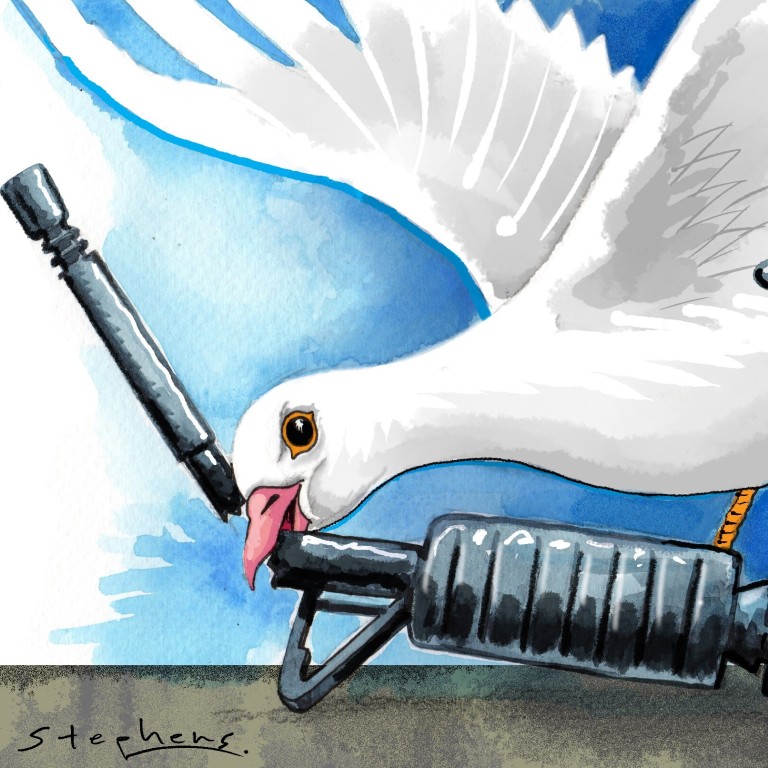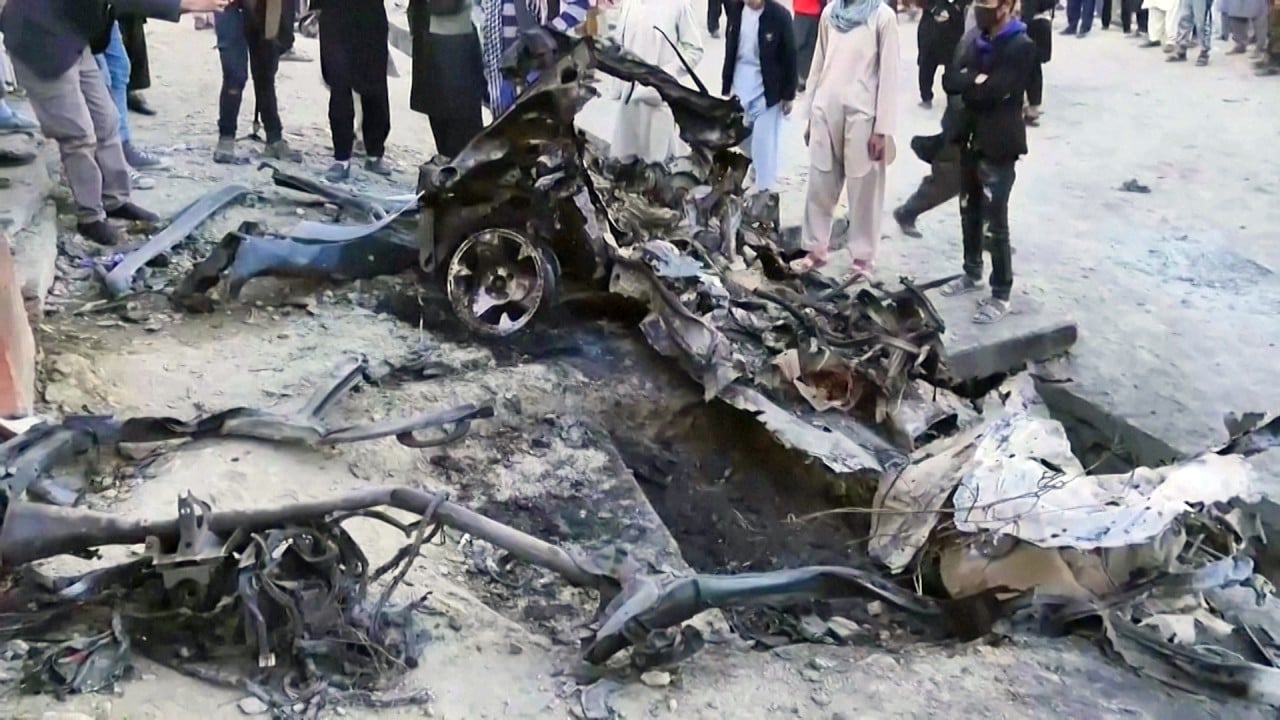
US-China tensions: an America all too experienced in war must take stock
- Joe Biden is pulling the plug on the Afghanistan conflict, but unwisely taking a hard line against China
- The situation around the East and South China seas is making the world nervous, and Beijing, for its part, must not misread Washington
We patriotic Americans usually call it Memorial Day weekend, but sometimes the barbecues and beer throw memory off base, as if the holiday on the last Monday of every May signifies no more than the winding down of a 72-hour party.
On Saturday, US Vice-President Kamala Harris innocently, if lamely, tweeted, “Enjoy the long weekend” – and that was it. A storm of criticism, not all of it ill-intended or partisan, impelled a clarifying tweet from her on Sunday: “Throughout our history our servicemen and women have risked everything to defend our freedoms and our country. As we prepare to honour them on Memorial Day, we remember their service and their sacrifice.”

02:14
Afghan girls’ school bombing kills at least 68, raises fear of more violence as US withdraws
By July, it is estimated, US forces there will either have returned home or been redeployed. Perhaps even by July 4. Someone might wish to nominate this career American politician for the Nobel Peace Prize for his gutsy, clear-headed decision. It certainly merits stellar memorialisation.
The hope here is that the decisive Afghanistan climbdown – not halfway into his first year in office – will before long scale up to a larger Biden vision of peace through diplomacy, instead of via Western military dogma.
How US withdrawal from Afghanistan offers promise and peril for China
Beijing, please take careful note and reconsider any tendency to view the withdrawal as a sign of weakness. It is not – it is a power move. As classic Chinese military doctrine teaches, a wise retreat is better than denying an error.
Right now, the Biden presidency enjoys high domestic public approval. A Chinese misreading of what is happening could add to the world’s increasing consensus that Beijing and Washington have got their relationship wrong, in part because neither understands the other.
“We … encourage the peaceful resolution of cross-Strait issues. We reiterate our strong opposition to any unilateral actions that could escalate tensions and undermine regional stability and the international rules-based order and express serious concerns about reports of militarisation, coercion, and intimidation in the region.”
This is from the final communique of the G7 Foreign and Development Ministers’ meeting in London in May. The concern here is directed at Beijing, but it takes two to go to war; this is the subtext.
Diplomatic? Just call it being offensive
Everyone knows it. Sensible analysts in China fully understand that, in the aftermath of Donald Trump’s rhetorical bombing campaign against all things China, Biden must be seen to be watching perceived Chinese escalations like a hawk.
But policies whipped up by nationalism tend to push their governments apart. There can come a point when the only way out of a corner is to shoot your way out. This is too close to where Beijing and Washington now find themselves. More war offers no answers but produces more absurdities.

02:46
Cross-strait politics get in the way of Taiwan’s desperate need for Covid-19 vaccines
This weekend, my warmest friend paid tribute to his recently departed wife (cancer) at a moving home ceremony. It was emotionally shattering. With death all around us, why add war-making, which rarely solves problems but adds to them?
If we truly care about life, we must care about death: the only fitting Memorial Day tweet would be one that announces a war against war. Otherwise, we all face a future world order that is punitive beyond current imaginations – which might prove nasty, brutish and long.
Their best move would be to cage the wolf, talk up the Confucianism and help us all find a way towards much-needed cosmic harmony.
Career journalist and American professor Tom Plate is Loyola Marymount University‘s Distinguished Scholar of Asian and Pacific Affairs, founder of Asia Media International (asiamedia.lmu.edu), and vice-president of the Pacific Century Institute

